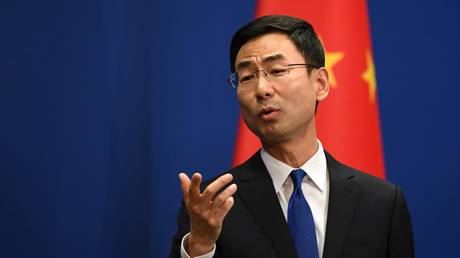The Qatar/Gulf Crisis Explained
by James Corbett, The International Forecaster:
 In reality, like any other geopolitical bombshell there may be one specific incident that sparks the powder keg,… but there are a number of different factors that compel each of the players at the table to act for their own interests.
In reality, like any other geopolitical bombshell there may be one specific incident that sparks the powder keg,… but there are a number of different factors that compel each of the players at the table to act for their own interests.
So what does a geopolitical bombshell look like, exactly? Well, something like what took place this past week in the Gulf. Namely:
Saudi Arabia, the United Arab Emirates (U.A.E.), Bahrain, Egypt, Mauritania, Yemen, and the Bayda-based so-called “eastern” government in Libya (and Maldives, don’t forget Maldives!) all cut diplomatic ties with Qatar this week.
The governments of Saudi Arabia, the U.A.E., Egypt and Bahrain have ordered all Qatari citizens out of their respective countries within the next two weeks.
Saudi Arabia, the U.A.E., Egypt and Bahrain have also banned all sea and air travel to and from Qatar, with Saudi Arabia shutting down the embattled states’ only land border.
The U.A.E. has made it illegal for any of its citizens to even voice support for Qatar, punishing offenders with hefty fines and up to 15 years in jail.
Egypt is tying to get the U.N. to investigate Qatar for a 2015 incident where the Qataris allegedly paid $1 billion to a terrorist group in Iraq to free 26 hostages, including members of the Qatari royal family.
Egypt issued a 10-point ultimatum with a 24 hour deadline calling on the Qataris to sever diplomatic relations with Iran, expel members of the Muslim Brotherhood and Hamas, close down Al Jazeera and end support for terrorist organizations, among other items.
Turkey’s parliament, meanwhile, has fast-tracked legislation allowing troops to be deployed to a Turkish base in Qatar in an apparent show of solidarity with its regional ally.
That, my friends, is a geopolitical bombshell.
Now, as out-of-the-blue as all this might appear to casual observers of the region, it is important to put these events into the larger historical context of tense relations between the State of Qatar and its Arab neighbors. Saudi Arabia, U.A.E. and Egypt had a months-long diplomatic dispute with the Qataris just three years ago that involved the withdrawal of those countries’ ambassadors from Doha over its support of the Muslim Brotherhood and other non-Saudi-approved extremists. And Saudi Arabia has closed Qatar’s land border during upheavals in the past.
But still, this particular dust-up is clearly an order of magnitude above previous tiffs, and is magnified by the precarious nature of a region already on the knife edge in so many ways.
So the obvious question is why? What line was crossed that necessitated a reaction like this? And why now?
The official position, expressed in the avalanche of official notices announcing the cutting of diplomatic ties on Monday, blamed Qatar for destabilizing the governments of its gulf neighbors, manipulation of public opinion via its Al Jazeera mouthpiece, supporting terrorists, financing groups linked to Iran, denying previous commitments, and “disregarding the principles of good neighborliness” (yes, that’s a thing in international law).
Of course, these are nothing but vague generalities and pot-calling-kettle-black level hypocrisy, and absolutely no one (MSM, think tank, independent media or assorted others) are taking these statements at face values.
But still, there has to be something more to this story than just long-simmering tensions over Qatari support for various groups that the Saudis are not fond of. And there certainly is “something more” here, or, to be more precise, several things more.
So what is this bombshell really about?
Well, it isn’t hard to see why there’d be some resentment of Qatar amongst its Arab “allies”(?) in the region. When Gaddafi’s compound in Libya fell during the 2011 decimation of that country, it was a Qatari flag that was flown over the bombed out building. Al Jazeera has not only been blamed for helping to incite the so-called “Arab spring,” their own personalities brag about it openly, pointing to the ouster of Mubarak in Egypt as an example of how the Qatari network has helped shape the region. And support for Iran? It was a report about the Qatari emir criticizing the other Gulf states and speaking in defense of Iran, Hamas, Hezbollah and the Muslim Brotherhood that was the immediate cause of this latest brouhaha in the first place.



